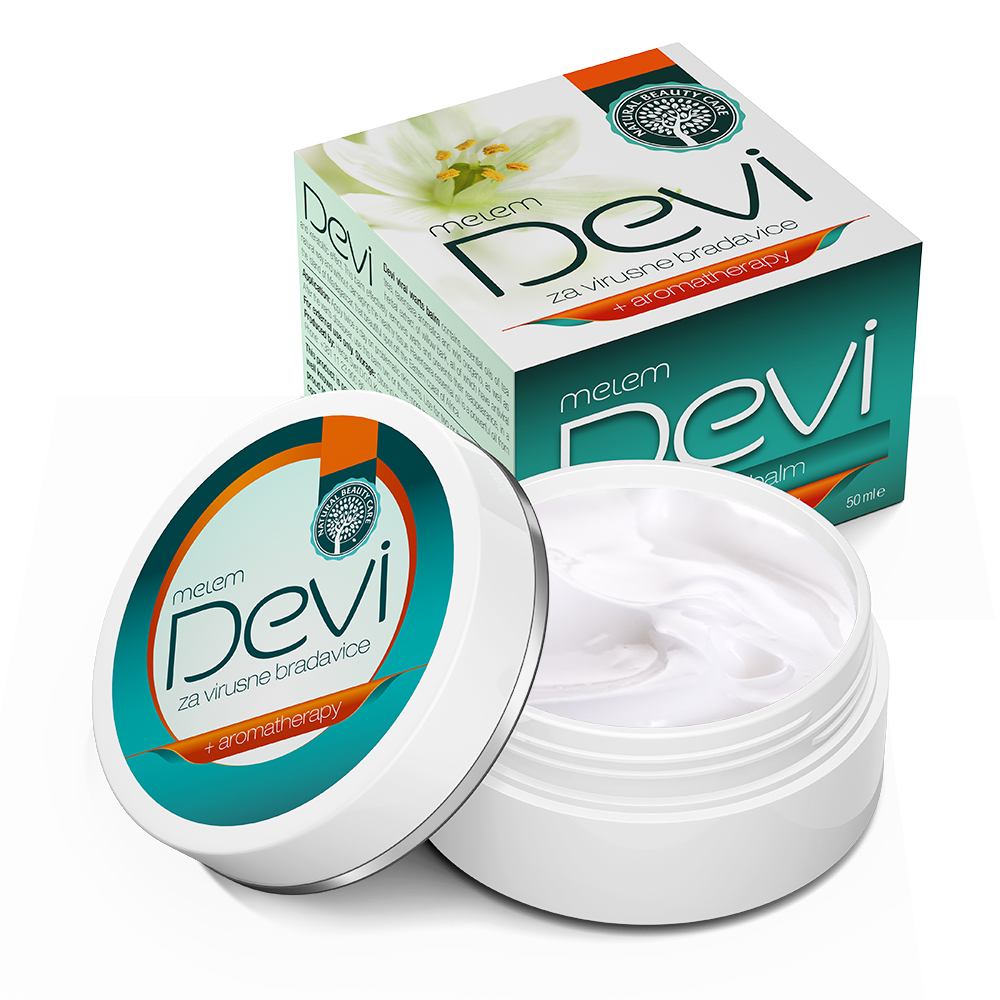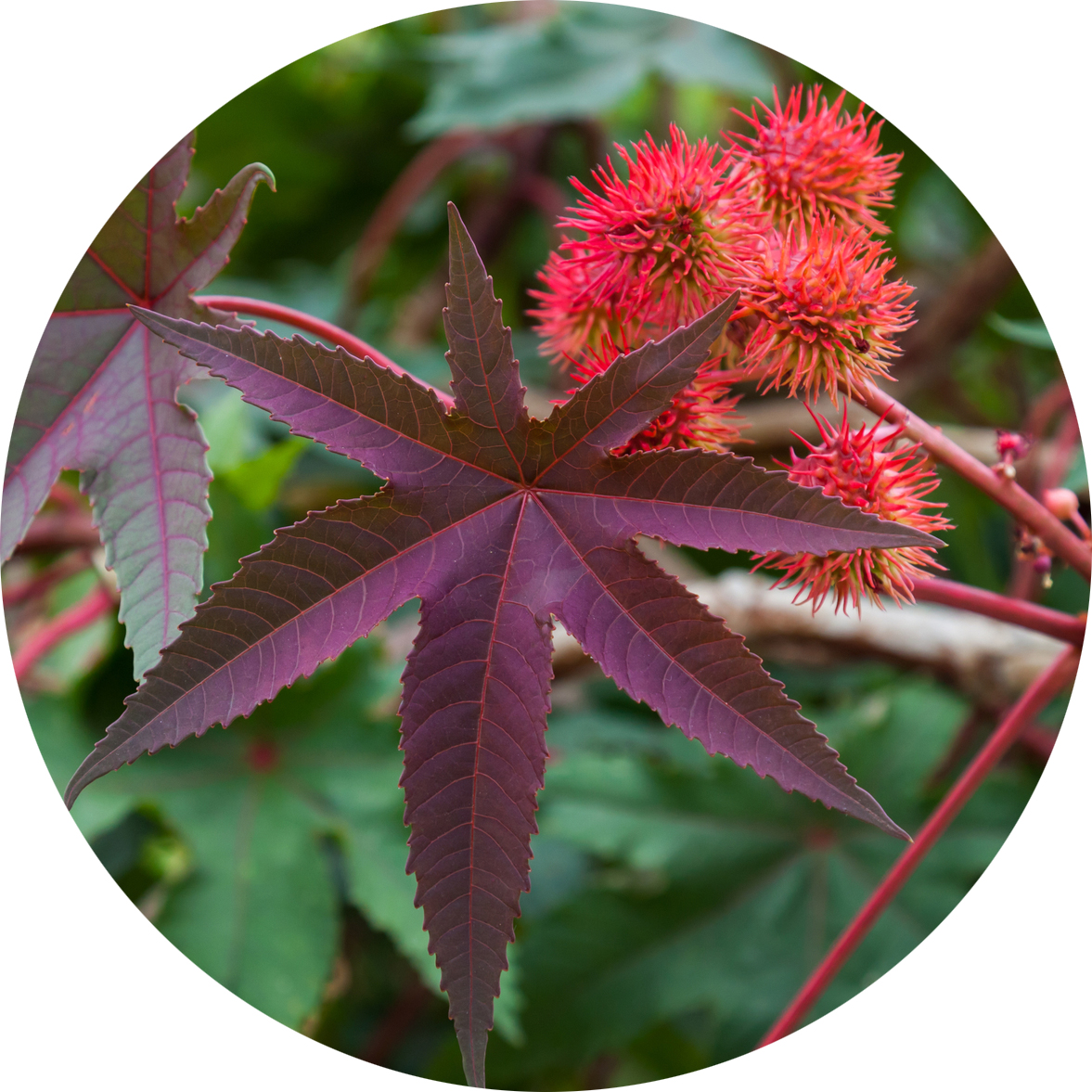(Ricinus communis)
When castor oil is mentioned, the first association for many people may be a scene from the cartoons that we used to watch in our childhood, where the biggest punishment for mischief is a spoonful of castor oil. The deceived heroes cannot escape punishment, and a second later, with their eyes wide open, they run to the toilet. This strong purgative often makes us laugh in comedies.
Castor oil is really a great laxative, about which the famous ancient Greek doctor Pedanius Dioscorides wrote a long time ago. In the 1st century AD, the “father of pharmacognosy” described in detail the complex and very important process of extracting oil from seeds. In addition to knowing about the very laxative effect of castor oil, Dioscorides was also aware that this plant was even more useful when applied to the skin.
MEDICINAL OR POISONOUS PLANT?
Ricinus communis, an annual herbaceous plant, has been part of folk medicine for a long time. It has another common name – palm of Christ or Palma Christi. It is a strange looking plant: in fact, it is quite decorative and has large feathery leaves, while the stem can be even over four metres high. Throughout history, castor oil has been widely used, both for the treatment of ailments and in the household: as lamp oil, in different balms, laxatives, to provide help during child-birth, treatment for haemorrhoids, lubricants in the aviation industry, biodiesel, Castrol motor oil, preservatives in the food industry, as an ornament in the garden – castor oil has made life easier for many people around the world, but it has sometimes been used against them too. During Mussolini’s fascist rule in Italy, opponents of the regime were forced to drink large amounts of castor oil, which was often fatal. Another political victim of castor oil was Bulgarian dissident writer Georgi Markov. His murder is reminiscent of James Bond movies: he was killed by a micro-needle umbrella by which ricin poison was injected into his thigh on a London street in 1978.
Like many drugs that can be fatal when misused, castor oil has its dark side: ricin contained in the seeds of this plant is one of the deadliest natural toxins and can kill a human in less than a minute, faster than a cobra bite. Ricin works by preventing protein synthesis in cells, and there is no antidote for it. Just seven castor seeds are enough to kill an adult. That is why the process of oil extraction is very important, which Dioscorides also wrote about. First, the seeds need to be cold pressed and need to go through several stages of heat treatment by which the poison is eliminated from the oil, which makes it safe to use. Thus safely processed, castor oil is a very therapeutic substance because it has useful and powerful ingredients: ricinoleic acid with strong antibacterial, antiviral and antifungal properties, as well as a number of fatty acids, especially stearic and linoleic acids, vitamin E, minerals and protein.
CASTOR OIL PROTECTS THE SKIN FROM MICROBES
In addition to being a pharmacist and botanist, Dioscorides was also a military doctor and often treated wounds inflicted in battles that were susceptible to infections and gangrene. That is where castor oil came into play. Ricinoleic acid, which is the main medicinal ingredient in castor oil, is very effective in preventing the multiplication of numerous strains of viruses, bacteria, fungi and mould. In addition, it is an effective remedy for a number of skin diseases and disorders, skin inflammation, scratches, fungal infections on the fingers and nails, itchy skin, keratosis and viral warts. Dioscorides was not the only one who appreciated castor oil. In India, it has been traditionally used for centuries to treat dysentery and infections of the intestines, bladder and genitals. Castor oil compressions have always been used around the world to relieve pain in muscles and joints and improve circulation; its balms have been used for skin care and to soothe insect bites, bruises and scars.
Today, castor oil is also used in hair care products and its contribution to strengthening hair roots, regenerating brittle, cracked and dry hair and promoting growth is well known; it is also effective in preventing fungal and bacterial infections of the scalp. It is also one of the best hair moisturizers for men and women. Just a few drops of this oil will make our eyelashes and eyebrows thicker and shinier, and our nails strong and healthy.
If we have castor oil on our side – if we use oil obtained in a professional procedure – instead of turning against us with its poisonous ricin, it will effectively route out the enemies of our skin with its ricinoleic acid: fungi, bacteria and viruses. Useful fatty acids in its composition will protect our skin and eliminate unwanted changes on it.
Due to all its positive properties, professionally-extracted castor oil is also an ingredient in Devi viral warts balm. Other ingredients in the balm are: tea tree oil, ravensara, clove, lemon, lavender, tamanu oil and willow bark extract. The synergy of these strong yet natural and gentle ingredients helps to remove viral warts in a simple way in just a few weeks, and castor oil will contribute to their gradual and painless drying. With Devi balm, the powerful castor oil is certainly on our side.

